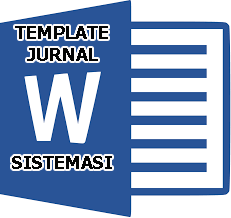Conceptual Model of Blockchain Technology for Chicken Meat Supply Chain in Yogyakarta City
Abstract
The limited number of Chicken Slaughterhouses that already have a halal certificate in Yogyakarta city, causes a limited number of chicken meat supplies that have been certified halal. Even though the majority of people in the Yogyakarta city are muslim. Therefore, halal guarantees for products concumed by the puplic are very important. One way that can be done to help track guarantees of halal product is to use blockchain technology. Blockchain can be used to assist in tracking information related to chickhen meat, so that it can increase transparency and increase consumer confidence regarding chichken meat product. The purpose of this research is to design a blockchain model on the chickhen meat supply chain in Yogyakarta city, so that customers can get informastion about chickhen meat that is distributed along supply chain. Based on the result and analysis, it is known that blockchain can allow all stakeholders involved to be able to share the information they have into the blockchain system, which later this information will be tracked by all stakeholders. So that by sharing information into the system will create data transparency an minimze data usage, because information that can no longer be changed.
Keywords: Blockchain, Supply Chain Management, Halal.
Full Text:
PDFReferences
B. Dimas, “Sebanyak 86,9% Penduduk Indonesia Beragama Islam,” [Online]. Available: https://dataindonesia.id/ragam/detail/sebanyak-869-penduduk-indonesia-beragama-islam.,”
D. Novianti, Y. Arkeman, M. N. Almunawar, L. Haditjaroko, and A. Ismayana, “Designing a Transparent Distributed Systems for Halal Supply Chains Using Blockchain Technology,” Journal of Business and Economic Analysis, vol. 03, no. 02, pp. 151–170, Jan. 2020, doi: 10.36924/sbe.2020.3204.
Dinas Perdagangan Kota Yogyakarta (2021). Laporan Akhir Survei Kepuasan Masyarakat Dinas Perdagangan Kota Yogyakarta Tahun 2021.
D. Reinna, “Analisis Integrasi Hubungan Antara Lean Six Sigma Dan Halal Principle Terhadap Sustainability Performance Pada Rumah Potong Ayam (Studi Kasus Rumah Potong Ayam di Kabupaten Sleman),” Thesis, Dept. Industrial Engineering, Ahmad Dahlan University, Yogyakarta, 2022.
BPJPH, “Alur Proses Sertifikasi Halal,” [Online]. Available: http://www.halal.go.id/layanan/sertifikasi.
T. Nur Ma, A. Rahmawan, and U. Darussalam Gontor, “Pengembangan Kerangka Konseptual Model Rantai Pasok Halal Pada Komoditas Daging Ayam Di Kabupaten Ponorogo,” CEMARA, vol, 15, pp. 29-34
S. N. Latifah, W. Wijayanti, and E. M. Utami, “The Effect of the Application of Total Quality Management, Supply Chain Management, and Entrepreneurship Orientation on Operational Performance,” Journal of Digital Marketing and Halal Industry, vol. 3, no. 1, pp. 63–72, Apr. 2021, doi: 10.21580/jdmhi.2021.3.1.7441.
Z. U. Dilla and M. S. Fathurohman, “Implementasi Halal Traceability Supply Chain Dengan Model Supply Chain Operation Reference (Scor) Industri Makanan Halal,” Jurnal Ekonomi Syariah Teori dan Terapan, vol. 8, no. 5, p. 617, Sep. 2021, doi: 10.20473/vol8iss20215pp617-629.
D. K. Kumar and M. D. Kumar, “Blockchain Technology In Food Supply Chain Security,” INTERNATIONAL JOURNAL OF SCIENTIFIC & TECHNOLOGY RESEARCH, vol. 9, p. 1, 2020, [Online]. Available: www.ijstr.org
M. A. Syakur, S. H. Purnomo, and B. S. Hertanto, “Analisis Rantai Pasokan (Supply Chain) Daging Sapi dari Rumah Pemotongan Hewan sampai Konsumen di Kota Surakarta,” Sains Peternakan, vol. 15, no. 2, p. 52, Sep. 2017, doi: 10.20961/sainspet.v15i2.11444.
D.Wahyuni and N. Arfidhila, “Traceability pada Rantai Pasok Pangan Halal: Review Literatur,” Talenta Conference Series: Energy and Engineering (EE), vol. 2, no. 4, Dec. 2019, doi: 10.32734/ee.v2i4.649.
“217-Article Text-536-1-10-20200916 (3)”.
A. D. Satria, “Makanan Halal Perspektif Majlis Ulama Indonesia (Mui) Di Kota Palangka Raya,” PROFETIKA, vol. 22, no. 2, pp.308-313.
L. Tysara, “Makanan Halal Menurut Islam, Pahami dari Al-Quran dan Hadist,” [Online]. Available: https://hot.liputan6.com/read/4499970/makanan-halal-menurut-islam-pahami-dari-al-quran-dan-hadits, 2021.
H. D. Faridah, “Sertifikasi Halal di Indonesia: Sejarah, Perkembangan, dan Implementasi,” Journal of Halal Product and Research, vol. 2, no. 2, 2019.
R. Ashari, P. Muda, and B. Provinsi Kepulauan Bangka Belitung, “Pengembangan sistem logistik produk halal di Indonesia,” In Halal Research, vol.1, pp. 8-19
E. Adisetya, R. A. Widyowanti, A. Ruswanto, and N. Ngatirah, “Rantai Pasok Agroindustri Berbasis Blockchain: Harapan dan Tantangan,” Syntax Literate ; Jurnal Ilmiah Indonesia, vol. 7, no. 1, p. 198, Jan. 2022, doi: 10.36418/syntax-literate.v7i1.5785.
D. Ardifah Iswari and Y. Arkeman, “AGRI-TEK: Jurnal Ilmu Pertanian,Kehutanan dan Agroteknologi; Analisis Dan Desain Rantai Pasok Kakao Berbasis Blockchain”, [Online]. Available: http://agritek.unmermadiun.ac.id/index.php/agritek
Y. Rohaeni and A. H. Sutawidjaya, “Pengembangan Model Konseptual Manajemen Rantai Pasok Halal Studi Kasus Indonesia,” Jakarta Pusat, 2020.
E. Adisetya, R. A. Widyowanti, A. Ruswanto, and N. Ngatirah, “Rantai Pasok Agroindustri Berbasis Blockchain: Harapan dan Tantangan,” Syntax Literate ; Jurnal Ilmiah Indonesia, vol. 7, no. 1, p. 198, Jan. 2022, doi: 10.36418/syntax-literate.v7i1.5785.
S. Aich, S. Chakraborty, M. Sain, H. I. Lee, and H. C. Kim, “A Review on Benefits of IoT Integrated Blockchain based Supply Chain Management Implementations across Different Sectors with Case Study,” in International Conference on Advanced Communication Technology, ICACT, Apr. 2019, vol. 2019-February, pp. 138–141. doi: 10.23919/ICACT.2019.8701910.
M. R. Hoffman, “Can Blockchains and Linked Data Advance Taxation,” in The Web Conference 2018 - Companion of the World Wide Web Conference, WWW 2018, Apr. 2018, pp. 1179–1182. doi: 10.1145/3184558.3191555.
D. Ivanov, A. Dolgui, and B. Sokolov, “The impact of digital technology and Industry 4.0 on the ripple effect and supply chain risk analytics,” Int J Prod Res, vol. 57, no. 3, pp. 829–846, Feb. 2019, doi: 10.1080/00207543.2018.1488086.
S. Devi, “Bukan Cuma Daging, Rumah Potong Hewan Juga Harus Kantongi Sertifikat Halal, [Online]. Available:”https://www.detik.com/edu/detikpedia/d-6164795/bukan-cuma-daging-rumah-potong-hewan-juga-harus-kantongi-sertifikat-halal.
D. Febrilian Tanjung et al., “SISTEMASI: Jurnal Sistem Informasi Hubungan Bisnis dan Supply Chain Information antara Disperinaker dan Industri Kecil Menengah.” [Online]. Available: http://sistemasi.ftik.unisi.ac.id
DOI: https://doi.org/10.32520/stmsi.v12i1.2390
Article Metrics
Abstract view : 833 timesPDF - 245 times
Refbacks
- There are currently no refbacks.

This work is licensed under a Creative Commons Attribution-ShareAlike 4.0 International License.









